Search
Remove Ads
Advertisement
Summary 
Loading AI-generated summary based on World History Encyclopedia articles ...
Search Results

Definition
Federalist Revolts
The federalist revolts were a series of rebellions that erupted in several parts of France in the summer of 1793, in response to the concentration of power in Paris during the French Revolution (1789-99). Most of the revolts were crushed...
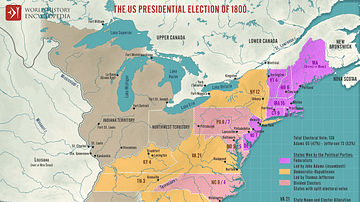
Article
US Presidential Election of 1800
The US presidential election of 1800, referred to by Jeffersonians as the Revolution of 1800, was a turning point in the early political history of the United States. It resulted in the victory of Vice President Thomas Jefferson of the Democratic-Republican...
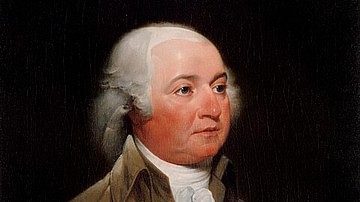
Definition
US Presidential Election of 1796
The US presidential election of 1796 was the first contested presidential election in the history of the United States. John Adams, the candidate of the Federalist Party, won the presidency, defeating his rival, Thomas Jefferson, candidate...
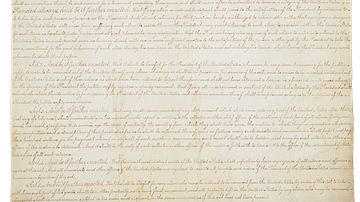
Definition
Alien and Sedition Acts
The Alien and Sedition Acts were four laws passed by President John Adams and the Federalist-controlled Congress in 1798 that restricted immigration and free speech in the United States. Framed by the Federalist Party as a necessary measure...

Definition
Boston Tea Party
The Boston Tea Party was an act of political protest carried out by American colonists on 16 December 1773, in Boston, Massachusetts. Disguised as Mohawk Native Americans, the colonists dumped 342 crates of tea into Boston Harbor to protest...
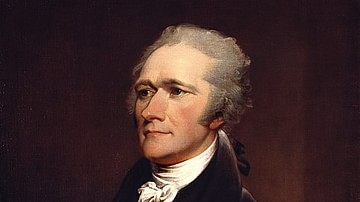
Definition
Alexander Hamilton
Alexander Hamilton (1755/57-1804) was a lawyer and politician, often recognized as a Founding Father of the United States. He served as George Washington's aide-de-camp during the American Revolution, before going on to become the first US...
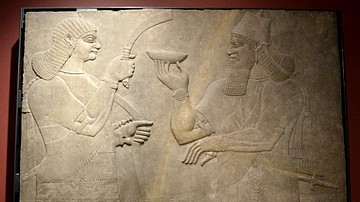
Article
The Greatest Party Ever Thrown: Ashurnasirpal II’s Kalhu Festival
The greatest party ever thrown in antiquity is the inaugral event thrown by Ashurnasirpal II (r. 884-859 BCE) in 879 BCE at the completion of his new city of Kalhu which was attended by almost 70,000 people who were served, among other treats...
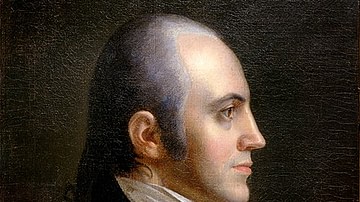
Definition
Aaron Burr
Aaron Burr (1756-1836) was an American politician and lawyer, who served as the third vice president of the United States (1801-1805). His reputation as a US Founding Father was marred by his killing of political rival Alexander Hamilton...

Definition
Whiskey Rebellion
The Whiskey Rebellion was a violent uprising that occurred in western Pennsylvania in 1794, in opposition to an excise tax on liquor. After anti-tax protestors assaulted federal tax collectors and threatened to march on Pittsburgh, President...
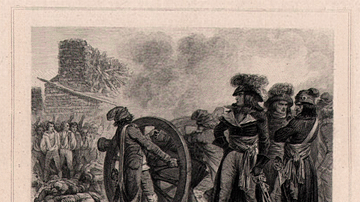
Image
Fouché Executing Federalist Prisoners in Lyon By Cannon
Engraving depicting the mass executions of Federalist rebels by cannon at point blank range, following the Siege of Lyon, August-October 1793. Engraving by Auguste Raffet, 1834.